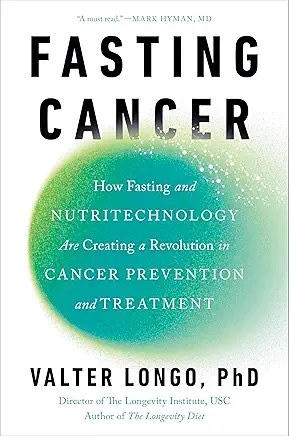Dr. Valter Longo, a prominent figure in the field of biogerontology, has extensively researched the intersection of nutrition, fasting, and cancer therapy. His recent work, particularly encapsulated in his 2025 publication, Fasting Cancer: How Fasting and Nutritechnology Are Creating a Revolution in Cancer Prevention and Treatment, provides a comprehensive overview of his findings and methodologies.
Key Insights from Fasting Cancer
In Fasting Cancer, Dr. Longo presents decades of research highlighting how controlled dietary interventions, specifically fasting and fasting-mimicking diets (FMDs), can enhance cancer treatment outcomes. He elucidates that while cancer cells are adept at exploiting various nutrients for growth, they become particularly vulnerable during fasting states. In contrast, healthy cells activate protective mechanisms under these conditions, leading to a differential stress response that can be therapeutically advantageous.
A notable quote from Dr. Longo emphasizes this concept:
“While we have learned that you cannot starve cancer with fasting alone, since cancer steals from other cells and finds a way to stay alive even if the patient fasts, you can use fasting-mimicking diets to make the cancer cells so weak or desperate that the right therapy will kill them.”
Furthermore, the book discusses how integrating his Longevity Diet—a plant-based nutritional regimen—and plant-based ketogenic diets can support and potentially amplify the efficacy of conventional cancer therapies. Dr. Longo underscores the importance of patients actively participating in their treatment plans through dietary strategies, aiming to make therapies more effective and less toxic
Recent Research Highlights
Dr. Longo's recent studies have provided empirical support for the benefits of FMDs in oncology:
- Breast Cancer Study (2024): A sub-analysis of the NCT03340935 trial indicated that incorporating FMD cycles with first-line carboplatin-based chemotherapy was associated with improved overall survival in patients with advanced triple-negative breast cancer.
- Chronic Lymphocytic Leukemia (2024): Research demonstrated that cyclic FMD, when combined with Bortezomib and Rituximab, effectively treated chronic lymphocytic leukemia, suggesting a synergistic effect between FMD and these therapeutic agents.
- T-Cell Leukemia (2023): Findings revealed that FMD inhibited autophagy and, in combination with chemotherapy, promoted T-cell-dependent leukemia-free survival, highlighting the potential of FMD to enhance immune-mediated cancer clearance.
These studies collectively suggest that FMDs can play a pivotal role in reprogramming cancer cell metabolism, improving the efficacy of standard treatments, and reducing adverse side effects.

